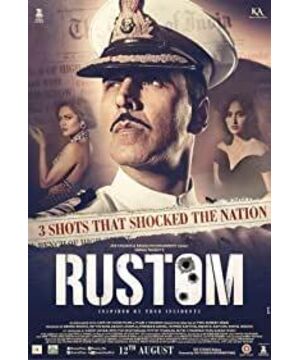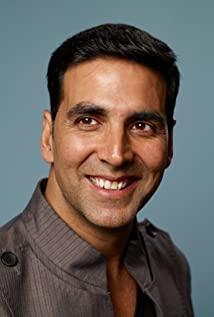It has been 12 years since the British left, but the system and lifestyle they left behind still affect the country.
1. The Torn Law
This is a true story that dates back to 1959 in India. It directly led to India's abandonment of the jury system.
A homicide case that is so simple that it cannot be simpler and is well-documented.
The honorable naval officer, in the mood of "home hatred and hatred for the country," elaborately designed, three shots ended the life of a rich man with a bad name, and then surrendered.
The various evils before the victim's life, the domineering arrogance of the victim's sister, the arrogance of power, the uprightness of the soldiers, the separation of religious beliefs, the sensationalism of the media, and the rabble and expression of the people... The homicide case turned into a trial of faith and morality, and the law, sadly and silently, exited the scene.
It seems that everyone got what they wanted: Rust was acquitted by the jury, the judge preserved the public image, the media showed the power to influence the public, and the public opinion was cheered...
Only the law, this Something that is regarded as "sacred" by people on various occasions has endured devastation and damage.
2. The abandoned jury system
In the real history, the Indian government decided to abolish the jury system in India after this case.
This is because the Indian government believes that “the members of the jury are very easy to be manipulated by the media, and therefore make unobjective judgments. Especially in a country like India with a multi-ethnic and very complex ethnic situation, the general public is not well-educated, so , The public opinion and the people are very easy to be manipulated."
Third, the rule of law is not only a system, but also a line of traditional
British people who left India with a modern rule of law system and one of the court trials they are most proud of: the jury system.
However, the British overlooked one thing: the rule of law is not only a system, it is also a tradition.
From the Magna Carta to the "Glorious Revolution" to the modern "constitutional monarchy", the British have been immersed in this tradition for thousands of years. They have gone through the vicissitudes of history, the times of the times, and they have gone through repeated disputes, corrections and adaptations. Practice today's driving ability.
In India, there is no such traditional foundation.
4. Pay attention to procedural justice
. The most striking controversy regarding the jury system was the "Simpson Wife Murder Case" that occurred in the United States in 1994.
When public opinion fell on one side and determined that Simpson, who had already had a bad reputation and had a major suspicion, was the murderer. His "Defense Lawyer Dream Team" used a wonderful and complicated procedure to help Simpson get rid of major suspicion. And was acquitted.
In fact, no one knows what the truth is except Simpson himself.
Americans who are also steeped in that tradition are more concerned about procedural justice. Fair defense opportunities and fair trial procedures are the rights of everyone, including the "bad guys." It has nothing to do with morals.
The law, rather than saying that it should "not wrong a good person, nor let a bad person go," it should also say that it should "not favor a good person, nor a bad person."
5. Tradition has grown up a little bit.
Although the "Simpson Wife Murder Case" has been controversial, the Americans did not weaken the jury system, let alone abandon the jury system, but worked with it in the process of bias and correction. ,move on.
As for the Indians, they formally inherited the excellent modern rule of law system left by the British, and this inheritance, because there is no inherent cultural, ideological, and psychological preparations, is more like a tree without roots and no source. Of water. It resembles a foreigner who is suspected of disturbing the previous traditions and minds of the host's family and was abandoned.
Therefore, India uses "abandonment" to end the growth of this seed, instead of learning how to adapt to it and grow with it.
You know, tradition has grown up little by little.
6. Excerpt from a conversation
A conversation between the naval officer and the sergeant handling the case:
- "What if the jury finds you guilty tomorrow?"
- "No, Mr. Rob, tomorrow I will be safe and the jury will support me."
- "How can you be so sure?"
--"Aren't you sitting here with me too, Mr. Rob. You, the jury, and the people outside, everyone knows that I am guilty, but don't think I should be The punishment is that Vikram is guilty of his death, and I should be acquitted.”
Seven, the traditional elements of
Indian movies The traditional elements of Indian movies, of course, are handsome guys, beautiful women, singing and dancing!
The film inherits this tradition as usual. It is beautiful and pleasing to the eye, although the dance is a bit less.
View more about Rustom reviews











